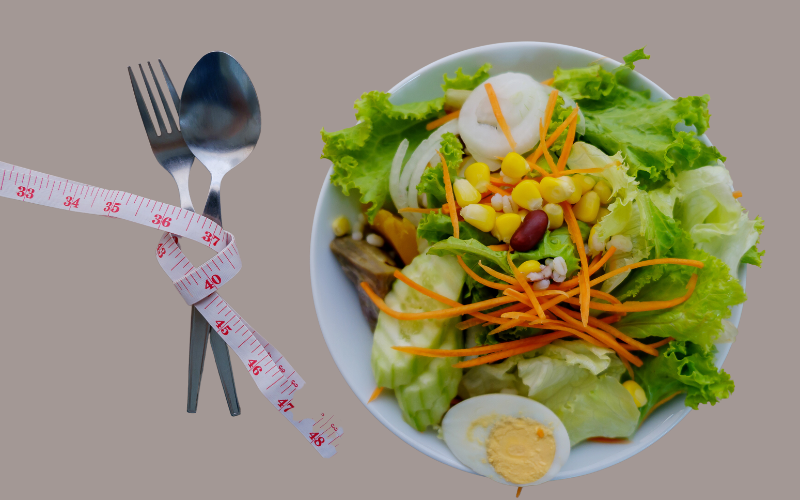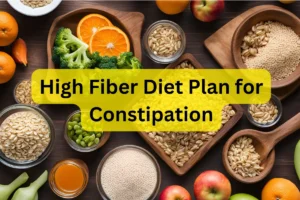Are you trying to lose weight and looking for a good weight loss diet plan to achieve your desired appearance and a healthy body? so you are right place, we’ll examine the best diet for losing weight and provide you insightful tips to help you find your path to success but before jumping on weigh loss diet plan, we have understand the basic of weight loss and its important.
The Weight reduction is an objective that many individuals make progress toward, and finding a viable eating routine arrangement is a urgent move toward making progress. With the right methodology, you can make a maintainable and pleasant weight reduction venture that assists you with shedding those additional pounds as well as advances in general prosperity. In this article, we will investigate a definitive weight reduction diet plan and furnish you with significant bits of knowledge to open your key to progress.
Starting to lose weight can feel both exciting and hard. Finding a thorough and successful weight loss diet plan that meets your goals is crucial given the abundance of information out there. The Ultimate Weight Loss Diet Plan is made to give you the methods, advice, and support you need to successfully lose weight. This strategy focuses on sustainable and long-term benefits rather than short-term remedies and crash diets. This ultimate weight loss diet plan seeks to equip you for success by including healthy eating practices, portion control, regular physical activity, and lifestyle modifications. Get go of fad diets and say hello to a happier, healthier you!
Table of Contents
Understanding the Basics of Weight Loss
What is weight loss?
Weight loss is when you reduce your body weight by losing fat and keeping or building muscle. This occurs when you expend more energy than you consume from food. Over time, this leads to a gradual decrease in weight. In other words we can say weight loss is the process of consciously losing body weight, usually through lowering body fat and occasionally by increasing muscular mass. Losing overweight and balance weight include many benefits like better overall health, more energy, more confidence and a lower risk of developing certain medical diseases.
Why is weight loss important?
Losing weight is fundamental due to many factors. It may work on general health and reduce the risk of chronic conditions such as obesity, diabetes, heart disease and some diseases. In addition, reducing excessive weight can improve endurance, support energy levels, and increase portability and actual performance.
Key Principles of an Effective Weight Loss Diet Plan
The following fundamental ideas must be recognized and put into practice in order to develop a successful weight loss diet plan:
Balanced nutrition:
A balanced nutrition plan ensures that your body receives all the essential nutrients if you follow a balanced diet plan. For maintaining healthy and balance nutrition in the body, its important to eat a variety of whole foods from different food groups like lean proteins, fruits, vegetables, whole grains, healthy fats, and low-fat dairy products.
Calorie deficit
For weight loss to occur, a calorie deficit must be created. Your body must use stored fat for energy if you consume less calories than it requires to maintain your current weight. A combination of dietary adjustments and increased physical activity can be used to attain this shortfall.
Portion control
Controlling portion sizes is crucial to manage calorie intake effectively. It is beneficial to pay attention to your food intake in order to prevent overeating and maintain your calorie targets.
Regular physical activity
Regular physical activity must be a part of your weight loss diet plan strategy. Exercise promotes cardiovascular health, lean muscle mass, metabolism, and general wellbeing in addition to burning calories. To get the best results, combine cardio and weight training activities.
Drinking enough water
Drinking enough water is often neglected but plays a huge role in weight loss. Water helps in digestion and craving control. Plan to drink about 8 cups (64 ounces) of water every day and if you’re really active or in hot weather conditions
Structuring Your Weight Loss Diet Plan
When structuring your weight loss diet plan, consider the following factors:
Determining caloric needs
To find out how many calories you need, you can use online calculators or talk to a registered dietitian. Your age, gender, weight, height, and activity level affect how many calories you require each day. Make sure you eat fewer calories than your body needs to maintain your weight to create a calorie deficit.
Balance Your Macronutrients
Balancing macronutrients such as carbohydrates, proteins, and fats are crucial for overall health and weight loss diet plan. The recommended distribution may vary depending on individual goals and preferences. A general guideline is to consume a moderate amount of carbohydrates, adequate protein for muscle preservation, and healthy fats for satiety and nutrient absorption.
Meal Planning and Smart Food Choice
Dietary success depends on careful meal planning and preparation. Setting aside time each week for meal planning, making a shopping list, and prepping wholesome meals and snacks will help you make better dietary choices. This strategy reduces impulsive decisions on harmful food options while encouraging mindful eating.
It is important to make informed decisions when choosing foods. Choose foods that are low in calories and high in nutrients. These nutrient-dense options ought to have plenty of fibre, vitamins, and minerals. Lean protein sources including chicken, fish, tofu, and lentils are recommended, as well as a range of fruits and vegetables. Additionally, choose healthy fats made from sources like avocados and whole grains rather than refined grains.
Recommended Foods for Weight Loss Diet Plan

When following a weight loss diet plan, it is beneficial to include the following foods:
Lean proteins: Essential amino acids are provided by lean proteins for muscle growth and repair. Incorporate sources of protein from plants, such as tofu and lentils, as well as animal sources including skinless chicken breast, turkey, fish, eggs, and low-fat dairy products.
Fruits and vegetables: Fruits and vegetables are low in calories and high in fiber, vitamins, and minerals. They provide essential nutrients while keeping you feeling full and satisfied. Incorporate a variety of colorful fruits and vegetables into your daily meals and snacks.
Whole grains: Whole grains, such as brown rice, quinoa, oats, and whole-wheat bread, are rich in fiber and provide sustained energy. They can help control hunger and prevent overeating.
Healthy fats: Healthy fats, such as avocados, nuts, seeds, and olive oil, are essential for overall health and satiety. They provide important nutrients and can help you feel satisfied after meals.
Low-fat dairy products: Low-fat dairy products, including milk, yogurt, and cheese, are excellent sources of calcium and protein. Choose reduced-fat options to minimize calorie intake while still reaping the nutritional benefits.
Ultimate 7-Day Complete Weight Loss Diet Plan for Fast Fat Loss
Losing weight doesn’t have to be complicated! This 7-day complete weight loss diet plan is designed to help you eat healthy, balanced meals while keeping things simple and budget-friendly. Packed with nutrient-rich foods, this plan follows the principles of the ultimate weight loss diet, keeping you full, boosting your metabolism, and supporting fat loss—without making you feel deprived. Each meal is easy to prepare, uses affordable ingredients, and aligns with the healthy eating guidelines in this guide. Get ready to enjoy delicious, satisfying meals while achieving your weight loss goals!
Day 1:
Breakfast: 1 cup cooked oatmeal topped with ½ cup fresh berries.
Lunch: 2 cups mixed greens salad with 3 oz grilled chicken breast, ½ cup cherry tomatoes, ½ cup sliced cucumbers, and 2 tbsp light vinaigrette.
Dinner: 4 oz baked salmon with 1 cup roasted broccoli and ½ cup cooked quinoa.
Snack: 1 medium apple with 1 tbsp almond butter.
Day 2:
Breakfast: ¾ cup plain non-fat Greek yogurt topped with ½ cup sliced bananas and 1 tbsp chia seeds.
Lunch: 1 whole-grain wrap filled with 2 tbsp hummus, 3 oz lean turkey, 1 cup lettuce, and ½ cup sliced bell peppers.
Dinner: 1 cup stir-fried tofu with 1½ cups mixed vegetables (bell peppers, snap peas) served over ½ cup cooked brown rice.
Snack: 1 cup carrot sticks with 2 tbsp hummus.
Day 3:
Breakfast: 1 smoothie made with 1 cup spinach, 1 cup frozen berries, and 1 cup unsweetened almond milk.
Lunch: 1½ cups lentil soup with a side of 2 cups mixed greens salad.
Dinner: 4 oz grilled shrimp with 1 cup steamed asparagus and ½ cup cooked wild rice.
Snack: ¼ cup unsalted mixed nuts.
Day 4:
Breakfast: 1 veggie omelet made with 2 eggs, ½ cup mushrooms, ¼ cup onions, ½ cup bell peppers, and 1 slice whole-grain toast.
Lunch: 1 cup quinoa salad with ½ cup black beans, ½ cup corn, ½ cup diced tomatoes, and 2 tbsp cilantro-lime dressing.
Dinner: 4 oz baked chicken breast with 1 cup roasted Brussels sprouts and ½ cup sweet potato mash.
Snack: 1 cup sliced cucumber with 2 tbsp tzatziki sauce.
Day 5:
Breakfast: ½ cup chia pudding made with 1 cup coconut milk, topped with ½ cup fresh berries.
Lunch: 1 chickpea salad sandwich made with ½ cup mashed chickpeas on 2 slices whole-grain bread with 2 leaves lettuce and 2 slices tomato.
Dinner: 1½ cups vegetable stir-fry with 4 oz tofu and ½ cup cooked brown rice.
Snack: 1 medium pear with 1 slice (1 oz) low-fat cheese.
Day 6:
Breakfast: 2 whole-grain pancakes topped with ½ cup blueberries and 1 tbsp pure maple syrup.
Lunch: 2 cups spinach and strawberry salad with 3 oz grilled chicken and 2 tbsp balsamic vinaigrette.
Dinner: 4 oz baked cod with 1 cup roasted cauliflower and ½ cup cooked quinoa.
Snack: 3 cups air-popped popcorn.
Day 7:
Breakfast: ½ cup overnight oats made with ½ cup rolled oats and ½ cup almond milk, topped with 2 tbsp sliced almonds.
Lunch: 1 whole-grain tortilla wrap filled with 2 tbsp hummus, 1 cup grilled vegetables, and 1 cup lettuce.
Dinner: 1 bell pepper stuffed with a mixture of 4 oz ground turkey, ½ cup cooked brown rice, and ½ cup diced vegetables.
Snack: 1 medium orange or 4 mandarin slices.
Why This Meal Plan Supports Weight Loss
- High in Protein – Includes lean protein sources like chicken, turkey, tofu, and fish, which help in muscle retention and satiety.
- Rich in Fiber – Incorporates high-fiber foods like vegetables, legumes, whole grains, and fruits, aiding digestion and keeping you full longer.
- Low in Processed Foods – Avoids refined sugars and processed foods, which can contribute to weight gain.
- Balanced Macronutrients – Provides a good mix of protein, healthy fats, and complex carbohydrates to maintain steady energy levels.
- Portion Control – Helps regulate calorie intake without feeling deprived.
- Hydration & Healthy Snacks – Encourages water intake and healthy snacking to prevent cravings and binge eating.
The Role of Water in Weight Loss Diet Plan

Water plays a significant role in weight loss and overall health. Consider the following aspects:
- Hydration and metabolism: Adequate hydration is vital for maintaining optimal metabolic function. By drinking enough water, you can support efficient digestion, enhance nutrient absorption, and facilitate calorie-burning processes in the body.
- Drinking water before meals: Consuming water before meals can help curb calorie intake by creating a sense of fullness. It’s recommended to have a glass of water approximately 30 minutes before each meal.
- Replacing sugary beverages: To promote weight loss, it’s beneficial to replace sugary beverages such as soda, fruit juices, and energy drinks with water. These drinks often contain empty calories that can contribute to weight gain.
- Infused water ideas: Adding fruits, vegetables, and herbs to water can infuse it with refreshing flavors and promote hydration. Experiment with combinations like lemon and mint, cucumber and lime, or strawberry and basil to enhance the taste of your water.
The Importance of Exercise in Weight Loss Diet Plan

Exercise is a crucial element in any weight loss plan. Here are the key points to consider:
- Types of exercises for weight loss: Both cardiovascular exercises such as walking, jogging, cycling, or swimming and strength training exercises using weights or resistance bands play a significant role in weight loss. To achieve the best outcomes, it is suggested to combine both types.
- Creating an exercise routine: Establishing a consistent exercise routine is essential. Schedule regular workout sessions and prioritize them in your daily or weekly schedule. Find a time that works best for you and stick to it.
- Combining cardio and strength training: To maximize the benefits of weight loss, it’s beneficial to combine cardio and strength training exercises. Cardio workouts help burn calories and fat, while strength training helps build lean muscle mass and increase metabolism.
- Benefits of regular physical activity: Engaging in regular physical activity not only supports weight loss but also offers numerous other health benefits. It improves cardiovascular health, boosts mood, reduces stress, and enhances overall energy levels.
Benefits of Intermittent Fasting
Intermittent fasting has emerged as a popular strategy for weight loss diet plan, offering potential benefits. Here’s a summary of the key points:
What is intermittent fasting?: Intermittent fasting involves alternating between fasting periods and eating windows. Common methods include the 16/8 method, where you fast for 16 hours and consume all your calories within an 8-hour window, or alternate-day fasting.
How it aids in weight loss: Intermittent fasting can be effective for weight loss as it helps reduce calorie intake, enhances insulin sensitivity, and promotes fat-burning processes. However, it is crucial to ensure that you still meet your nutritional needs during the eating periods to maintain overall health.
Different methods of intermittent fasting: There are various approaches to intermittent fasting, allowing individuals to experiment and find the method that aligns with their lifestyle and preferences. It’s important to choose a method that can be sustained in the long term.
Safety considerations: Intermittent fasting may not be suitable for everyone, especially individuals with certain medical conditions or eating disorders. It is essential to consult with a healthcare professional before embarking on any fasting regimen to ensure it is safe and appropriate for your specific circumstances.
Tips for Staying Motivated and Overcoming Plateaus
Staying motivated and overcoming plateaus are common challenges on a weight loss diet plan journey. Here are some tips to help you stay on track:
- Setting realistic goals: Set achievable goals that are in line with your lifestyle and preferences. Break them down into smaller milestones, and celebrate your accomplishments along the way. This will keep you motivated and focused.
- Tracking progress: Keep track of your progress by regularly weighing yourself, taking measurements, or using progress photos. Seeing the results of your hard work can boost motivation and help you identify areas that may need adjustment.
- Seeking support: Build a support system that can provide encouragement and accountability. Join a weight loss community, find a workout buddy, or consider working with a registered dietitian or personal trainer for professional guidance and support.
- Varying workout routines: Avoid hitting workout plateaus by incorporating variety into your exercise routines. Try different types of exercises, such as cardio, strength training, yoga, or group fitness classes. This not only keeps your workouts interesting but also challenges your body in different ways.
- Trying new recipes: Explore new recipes and experiment with healthy ingredients and cooking methods. This can help you discover enjoyable meals that align with your weight loss goals and prevent dietary monotony.
By implementing these tips, you can stay motivated, overcome plateaus, and continue making progress on your weight loss journey.
Frequently Asked Questions for Weigh Loss Diet Plan (FAQs)
Q. Is it necessary to count calories to lose weight?
Answer: Counting calories can be a helpful tool for weight loss, but it’s not the only approach. You can also focus on portion control, balanced nutrition, and mindful eating to achieve your goals.
Q. Can I indulge in my favorite foods while on a weight loss diet plan?
Answer: Moderation is key. You can enjoy your favorite foods occasionally as part of a balanced diet. Just be mindful of portion sizes and overall calorie intake.
Q. How long does it take to see results with a weight loss diet plan?
Answer: Results vary depending on individual factors such as metabolism, starting weight, and adherence to the plan. It’s important to focus on long-term progress rather than quick fixes.
Q. Is exercise necessary for weight loss?
Answer: While diet plays a significant role in weight loss, exercise is beneficial for overall health, boosts metabolism, and enhances weight loss efforts. It is recommended to combine both for optimal results.
Q. Can I maintain my weight loss after reaching my goal?
Answer: Yes, by adopting healthy habits and making sustainable lifestyle changes, you can maintain your weight loss in the long run. It’s important to continue practicing mindful eating and regular physical activity.
Q. How do I stay consistent with this diet plan?
Staying consistent involves setting realistic goals, meal prepping, and maintaining a positive mindset. The plan includes tips to help you stay on track even with a busy schedule.
Q. What happens if I stop following the diet plan?
If you return to unhealthy eating habits, weight gain may occur. However, adopting the principles of this plan as a long-term lifestyle change can help you maintain your results sustainably.
Q. Will I need expensive or hard-to-find ingredients for this diet?
Not at all! This diet plan focuses on using easily available and affordable ingredients. The idea is to make healthy eating accessible to everyone without breaking the bank.
Q. Can I customize the diet plan based on my preferences?
Of course! The diet plan offers flexibility and can be adjusted to include foods you enjoy while maintaining the principles of healthy eating and calorie balance for weight loss.
Conclusion
It can be difficult to start a weight loss journey, but with the appropriate diet and attitude, you can succeed. Consider putting an emphasis on a calorie deficit, portion control, frequent exercise, and staying hydrated. Implement techniques for maintaining motivation and getting over plateaus, and avoid frequent errors. Keep in mind how crucial it is to develop healthy habits and, when necessary, seek professional advice. You can find the secret to a fruitful weight loss endeavor by adhering to these recommendations and personalizing them to suit your particular requirements.
For more content related Health click here




